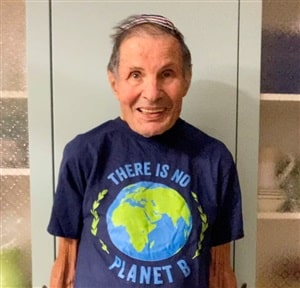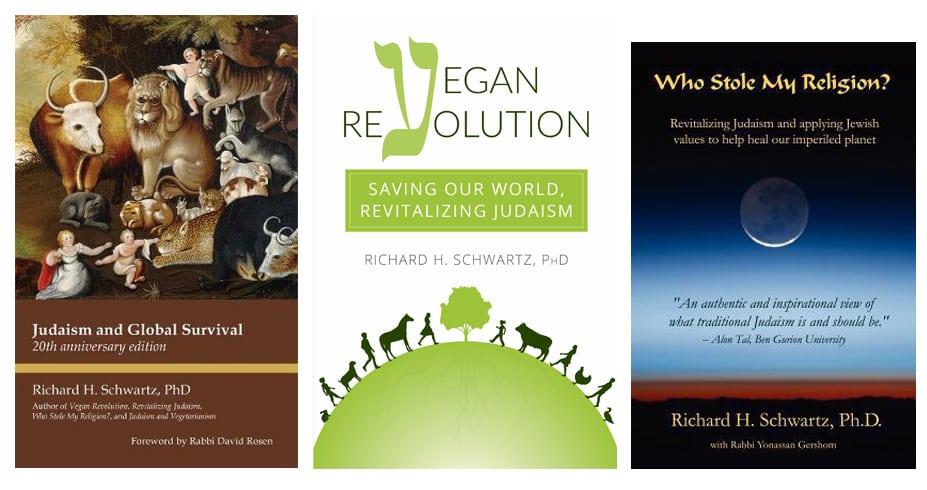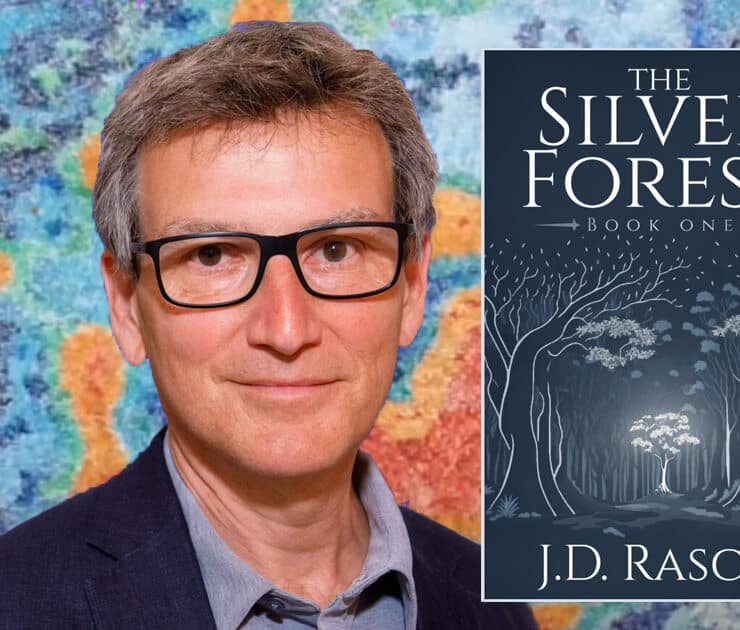Expert Reveals Connection Between Judaism and Veganism

Jewish scholar Richard H. Schwartz has been revealing the connections between Judaism and Veganism in a series of educational books

Los Angeles, July 2oth, 2023 — Over the course of an awe-inspiring career, Richard Schwartz, now 89 years old, has revealed the many connections between Judaism and veganism. This esteemed professor, and longtime vegan activist, has dug deep into the Jewish scriptures and identified the teachings that validate a vegan lifestyle where harm to animals is avoided. Professor Schwartz makes a strong argument that the best way to align one’s life with the values of Judaism is to avoid all animal products and any animal exploitation.
Professor Schwartz, Ph.D., is now re-publishing his acclaimed book, Judaism and Global Survival — 20th-anniversary Edition, which presents basic Jewish teachings on peace, justice, compassion, sharing, love of neighbors, environmental sustainability, and other subjects. This prolific writer says it’s increasingly urgent to apply these teachings to combat climate change, biodiversity loss and other environmental threats that are a side effect of industrial animal agriculture.
UnchainedTV’s Jane Velez-Mitchell spoke with Professor Schwartz about the connection between Judaism and veganism, a fascinating conversation you can watch here:
An Expert on Veganism, Vegetarianism, and Judaism

Professor Schwartz is the author of Vegan Revolution: Saving Our World, Revitalizing Judaism; Judaism and Vegetarianism; Judaism and Global Survival; Who Stole My Religion? Revitalizing Judaism and Applying Jewish Values to Help Heal Our Imperiled Planet; and Mathematics and Global Survival. He has also published over 250 related articles at JewishVeg.org/schwartz. He is President Emeritus of Jewish Veg, associate producer of the video “A Sacred Duty: Applying Jewish Values to Help Heal the World,” and professor emeritus at the College of Staten Island, New York.
This is what he said when asked to summarize the connection between Judaism and veganism:
“There are many connections. I try to point out these six Jewish mandates — and, by the way, other religions have similar mandates — that point to veganism as the ideal diet. And these are, to take care of our health, to treat animals with compassion, to protect the environment, to conserve natural resources, to help hungry people, and to seek and pursue peace. In addition to that, in the Torah, the Jewish scriptures, in the very first chapter, chapter one verse 29, you can read that God’s first dietary regimen is strictly vegan.”
He also says that the messianic period is pictured as being a vegan world based on the powerful prophecy of Isaiah, which says that, at that ideal time, the wolf will dwell with a lamb, “No one shall hurt nor destroy the oath of god’s holy mountain.”
“If people shifted to a vegan diet and the food produced was fed directly to people, that could end the scandal of world hunger, or sharply reduce it.” — Professor Richard H. Schwartz, Jewish scholar
Philosophies and Teachings

Many of those who have adopted the philosophy of veganism hope for a world where, one day, veganism is the cultural norm. This does not mean that people would abandon their religions and replace them with this philosophy. Rather, veganism would exist within the framework of each religion. Through his writings, Professor Schwartz makes strong arguments that Judaism and veganism compliment each other because of their many philosophical commonalities. He explains it this way:
“According to Judaism, Jews are to be compassionate children of compassionate ancestors. The Book of Proverbs says the righteous individual considers the lives of his or her animal… one of the teachings is that before a Jew sits down to his or her own meal, he or she is to make sure that any pet they have, any farmed animal, is fed beforehand.”
For him, the core mandates of the Jewish religion clearly point in the direction of veganism. He adds, “To me, the bottom line is that every single Jew has a choice in their diet. I can’t say that all Jews must be vegans — although, if somebody takes seriously the very important mandates I mentioned about taking care of our health and treating animals with compassion, for example, I can’t see how they could not be a vegan.”
“The bottom line is we have a choice. We always argue, shouldn’t that choice be made taking into account the highest of Jewish values?” — Professor Richard H. Schwartz, Jewish scholar
Being Vegan Helps to Keep Kosher

In Hebrew, kosher means fit or proper. Among other things, the term kosher is used to describe any food that complies with a strict set of dietary rules in Judaism, called kashrut. These rules cover which foods to eat, how to prepare them, and how to combine them. Professor Schwartz explains how it is easier to follow such rules if one is vegan:
“It makes it much easier to keep the food kosher on a vegan diet because a lot of things involve meat. You can’t eat certain animals, and according to Judaism — it says it three times in the Torah — you can’t mix meat and milk. If you have a meat meal, you have to wait. Well, different people have different traditions but many say you have to wait at least 6 hours.”
“The test for righteousness that the book of Proverbs, chapter 12 verse 10, indicates is the righteous individual considers the lives of his animals.”— Professor Richard H. Schwartz, Jewish scholar
What's Your Reaction?
Jordi Casmitjana is a vegan zoologist and author.









